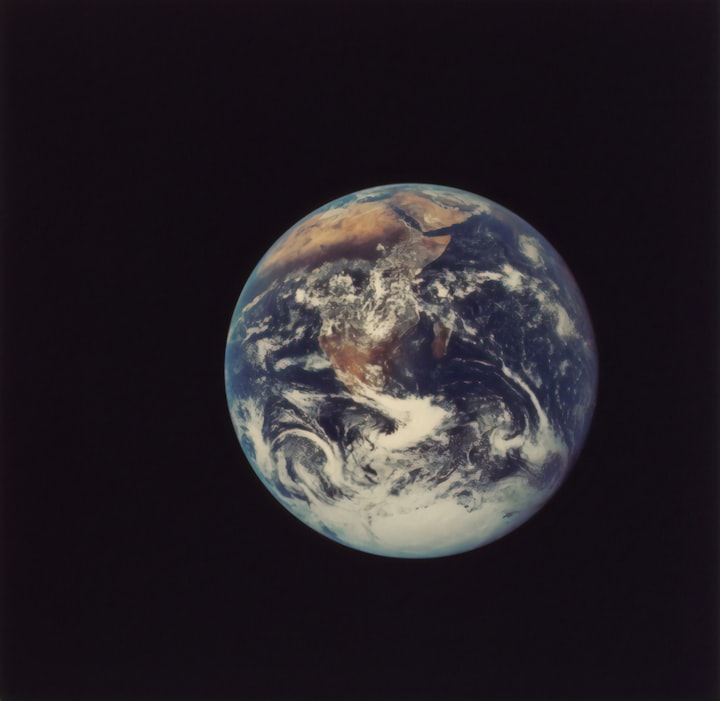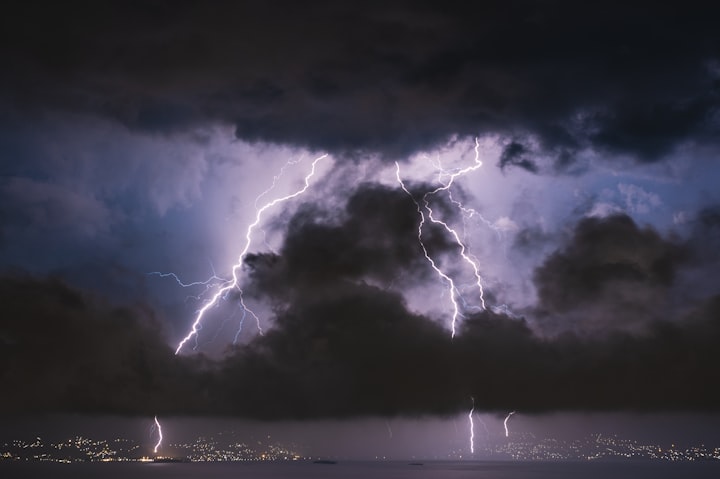
Water
Water is a transparent, odorless, tasteless, and nearly colorless chemical substance that is the main constituent of Earth's streams, lakes, and oceans, and the fluids of most living organisms. It is vital for all known forms of life, even though it provides no calories or organic nutrients. Its chemical formula is H2O, meaning each of its molecule contains one oxygen and two hydrogen atoms that are connected by covalent bonds.
Water covers approximately 71% of the Earth's surface and is found in various states, including liquid, solid (ice), and gas (water vapor). It is the most abundant substance on Earth and is essential for all forms of life. It is also the only substance that naturally occurs in all three states of matter at temperatures and pressures found on Earth.
Water is a polar molecule, meaning that the oxygen atom has a slight negative charge and the hydrogen atoms have slight positive charges. This polarity allows water molecules to form hydrogen bonds with one another, giving water its unique properties. The hydrogen bonds are responsible for water's high surface tension, high boiling point, and high heat of vaporization. They also make water an excellent solvent, able to dissolve many ionic and polar substances.
Water has many important roles in nature, including maintaining temperature and moisture levels in the atmosphere, shaping the Earth's surface through erosion and deposition, and providing habitat and food for a wide variety of organisms. It is also an important resource for humans, as it is used for drinking, irrigation, industry, and recreation.
The water cycle, also known as the hydrologic cycle, describes the movement of water through the Earth's system. The sun's energy drives the water cycle, evaporating water from the surface of the Earth, forming clouds, and eventually causing precipitation. The water then flows through rivers and streams back to the ocean, where it can evaporate again and begin the cycle anew.
One of the most important properties of water is its ability to moderate temperature. Water has a high heat capacity, meaning it can absorb a large amount of heat energy before its temperature rises. This property allows bodies of water, such as oceans and lakes, to act as heat sinks and regulate the climate in the regions around them.
Water also plays a crucial role in the carbon cycle, which is the process by which carbon is exchanged between the atmosphere, oceans, and land. Through photosynthesis, plants and algae take in carbon dioxide from the air and convert it into organic matter, releasing oxygen in the process. When these organisms die, they sink to the bottom of the ocean and are buried, storing carbon in the sedimentary rock.
Water scarcity is an increasing concern in many parts of the world. Climate change is projected to exacerbate water scarcity in many regions, as changes in precipitation patterns and rising temperatures increase the risk of droughts. Additionally, as the global population continues to grow, the demand for water is also increasing, putting a strain on available resources.
To ensure that everyone has access to clean water, it is important to carefully manage water resources. This can include building dams and reservoirs to store water for times of drought, implementing irrigation systems to make more efficient use of water in agriculture, and treating wastewater to make it safe for reuse.
In conclusion, water is an essential substance for life on Earth and plays a vital role in many natural processes. It is a limited resource, and it is important to use it efficiently and sustainably to ensure that everyone has access to clean water. Climate change, population growth, and industrialization are putting increasing pressure on water resources, making it more important than ever to find ways to manage and conserve water





Comments
There are no comments for this story
Be the first to respond and start the conversation.